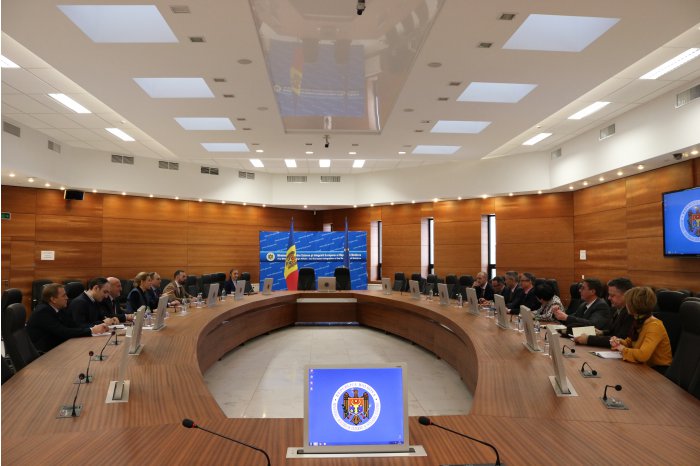Moldova demands trenchant attitude of mediators, observers on latest developments in Transnistria-related problems
16:55 | 31.01.2019 Category: Official
Chisinau, 31 January /MOLDPRES/ - The state secretary at the Foreign Affairs and European Integration Ministry (MAEIE), Tatiana Molcean, has set forth the Moldovan authorities’ position on provocative actions undertaken by representatives of the Tiraspol regime on the last period, at a meeting with the heads of the diplomatic missions of Russia, Ukraine, Slovakia, OSCE Mission in Moldova, United States and European Union, the MAEIE press service reported.
The MAEIE state secretary expressed the Moldovan authorities’ disappointment and perplexity about the recent opening of an “official representation of Transnistria in Moscow,” disguised behind the screen of a public organization. In the context, the Moldovan official that the country’s authorities consider that the concerned action glaringly run counter the basic provisions of the Moldovan-Russian treaty on friendship and cooperation, signed in November 2001, as well as the commitments assumed by Russia as impartial mediator in the Transnistrian conflict settlement process.
The state secretary attracted attention to the so-called “decrees” by Krasnoselsky from 19 October 2018 and 25 January 2019, under which seven settlements on the left bank of Dniester from the Dubasari district (Dorotcaia, Cosnita, Pohrebea, Parata, Cocieri, Molovata Noua and Vasilevca), as well as the settlement Varnita from the right bank of Dniester are declared settlements “which are temporarily under Moldova’s control.”
The MAEIE official said the authorities of Moldova describe these acts as a provocation against all international partners involved in the process of negotiations on the Transnistrian settlement, able to destabilize the situation in the Security Zone and create new tensions between the two banks of Dniester. The MAEIE state secretary stressed that, through such destructive actions, in parallel with public statements by representatives of the Tiraspol regime on their tendency to “get international recognition of the independence of the Transnistrian Moldovan republic,” excluding any alternative of the process of settlement of the Transnistrian problem, the policy of small steps and measures of strengthening the confidence and support of residents from the conflict-stricken zone is practically undermined.
In the context, the Moldovan diplomat appealed to all partners involved in the process, especially the OSCE Mission in Moldova and the Slovakian OSCE chairmanship-in-office, to take a trenchant attitude towards these defying actions of Tiraspol, which eventually undermine the process of talks on the Transnistrian conflict settlement.

